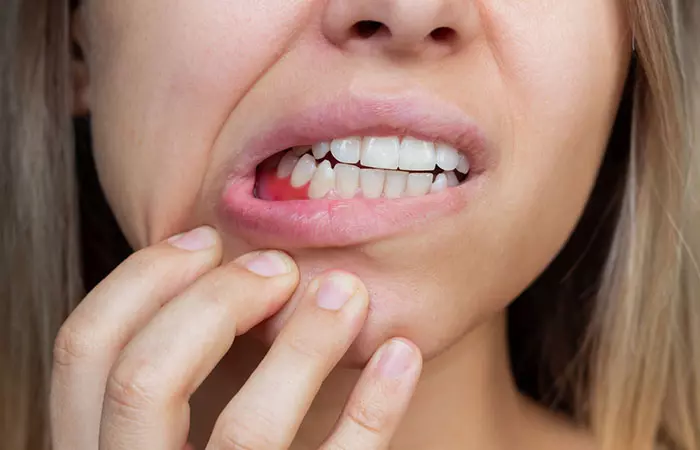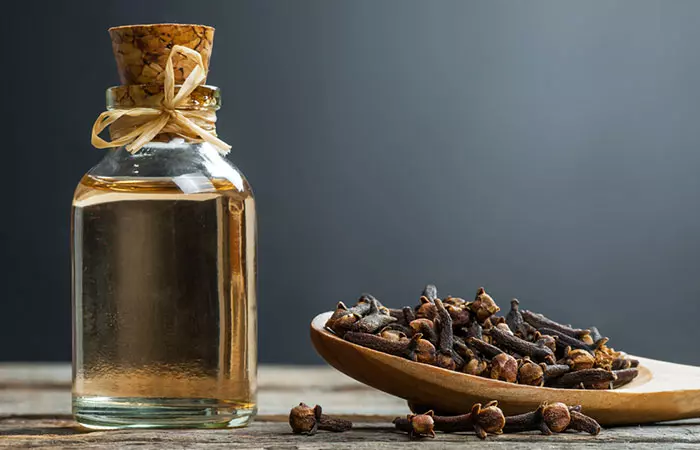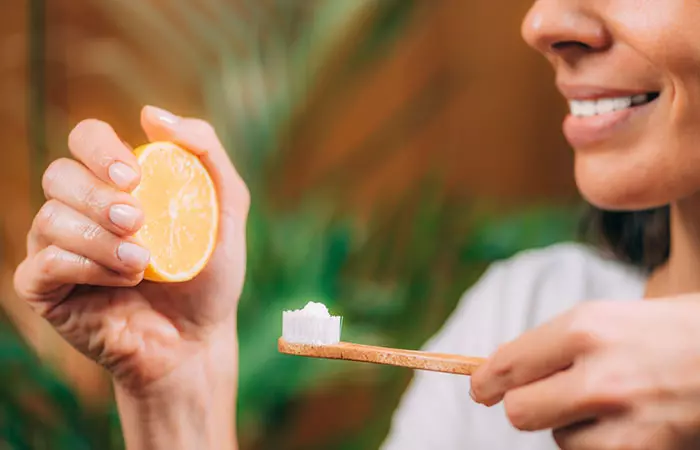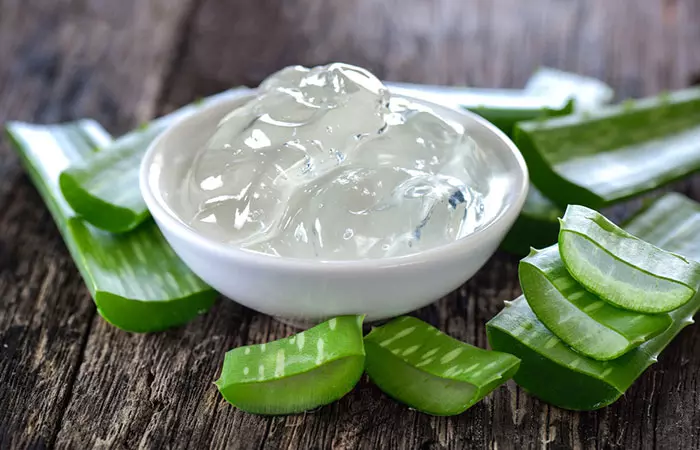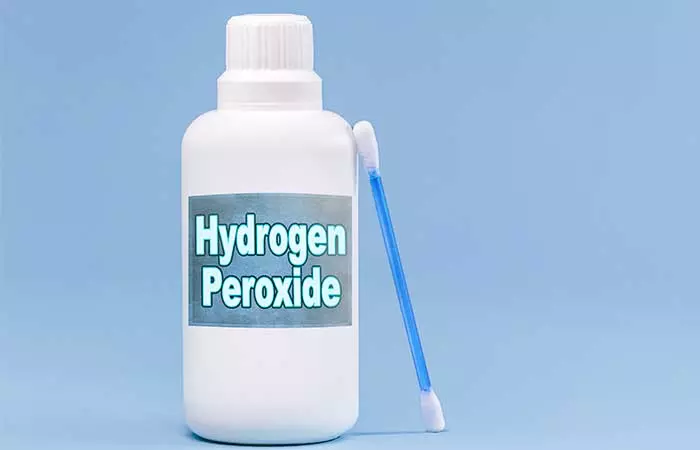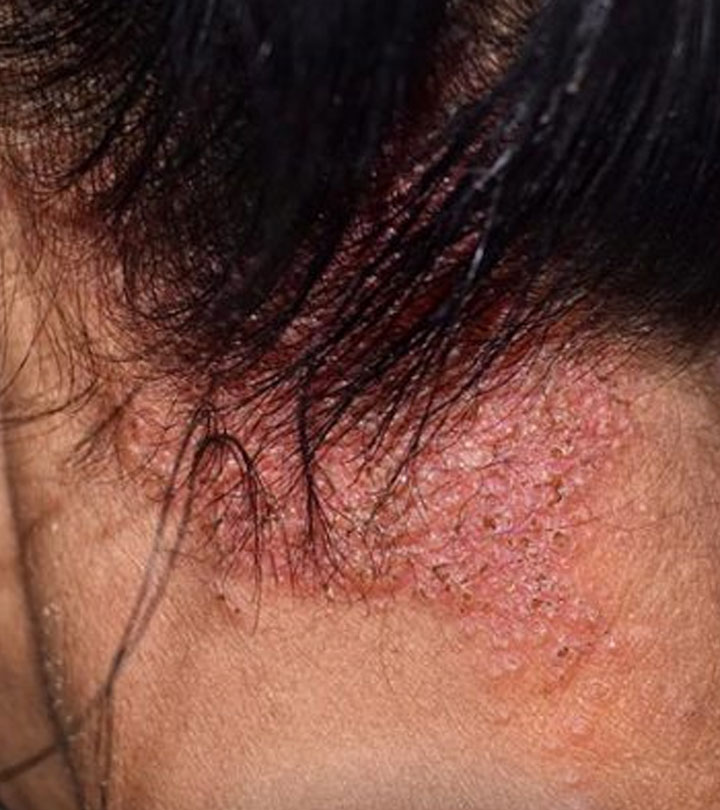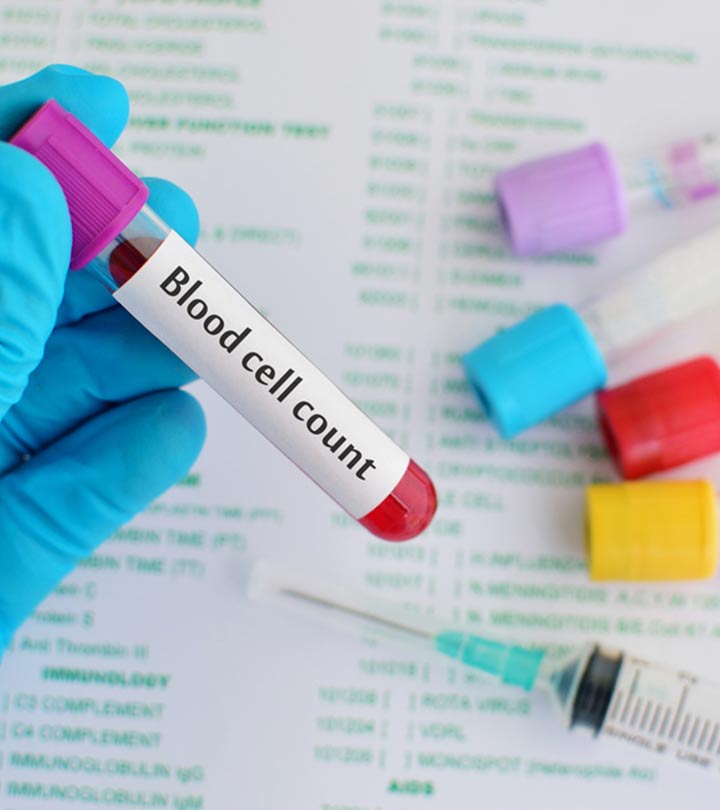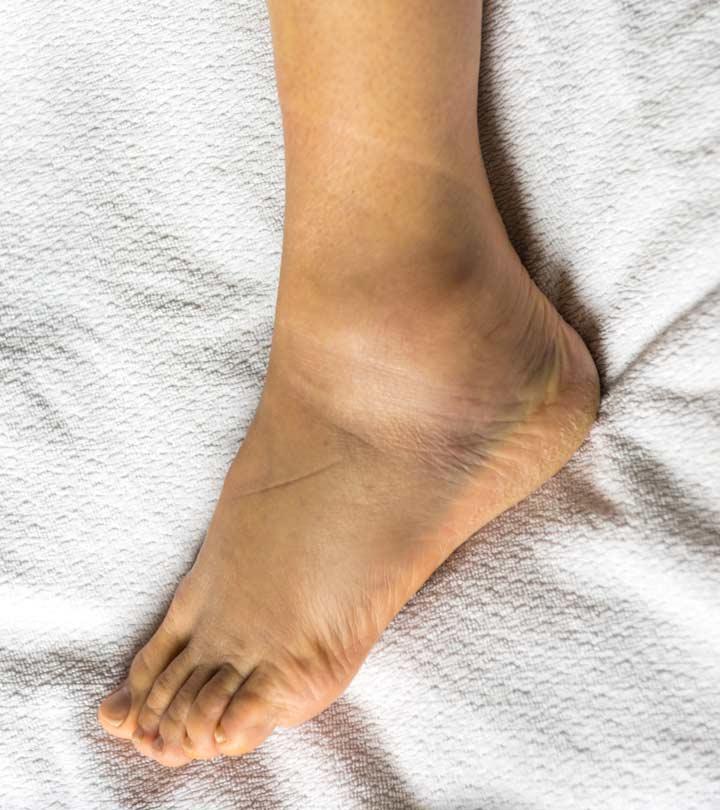15 Home Remedies For Swollen Gums And Prevention Tips
Natural and safe solutions to prevent and heal those painful and enlarged gums.

Image: Shutterstock
Lack of oral hygiene or food getting stuck in your teeth can cause swollen and painful gums. If your gums bleed at the slightest touch of your brush, it may be a symptom of a gum disease called gingivitis or periodontitis. Painful and uncomfortable beyond words, swollen gums can disrupt your day-to-day activities, but the good news is, there are several home remedies for swollen gums you can try to reduce the discomfort. In this article, we explore the symptoms and simple tips to prevent swollen gums. Note: While gum diseases cannot be treated completely with home remedies, consult a doctor immediately for further treatment.
In This Article
What Causes Swollen Gums?
Swollen gums are commonly caused by:
- Plaque and tartar in your mouth can lead to gum swelling (Gingivitis)
- When the gingival infection progresses, gum swelling is sustained in the mouth (Periodontitis)
- Viral or fungal infections
- Irritation due to dental fixturesi Surgical implants that are placed in the jawbone to replace missing teeth, and they eventually merge with the jawbone.
- Pregnancy
- Allergies and sensitivity to dental products or food
- Gum injury (1), (2)
Symptoms For Swollen Gums
The common symptoms of this condition include:
- Bleeding of the gums
- Red and swollen gums
- Pain
- Increase in the gaps between the teeth
- Bad breath (1), (2)
Amelia, a vlogger, shared her painful experience with swollen gums due to her braces in her video. She said, “I experienced a lot of gum swelling when I had my braces on. They kept getting worse (i).”
Here are 15 of the most effective home remedies that can relieve swollen gums, be a great addition to your dental care and help in maintaining proper oral health.
Home Remedies To Get Rid Of Swollen Gums
- Salt Water
- Clove Oil
- Ginger
- Baking Soda
- Lemon Juice
- Essential Oils
- Lawsonia Inermis Leaves
- Castor Seed Oil
- Babul (Acacia Arabica) Tree Bark
- Aloe Vera Gel
- Turmeric
- Apple Cider Vinegar
- Vanilla Extract
- Epsom Salt
- Hydrogen Peroxide
1. Salt Water
Saltwater is one of the most commonly used remedies for oral problems. It neutralizes the mouth’s pH and soothes inflamed gums (3). A saltwater rinse was also found to be beneficial in preventing swelling of the alveolar bonei It is the thick ridge of bone that holds the teeth sockets and is found to the jaw bones that support the teeth. after tooth extraction (4). Hence, it may help reduce swelling around the gums. However, more scientific studies are needed to determine the effect of saltwater rinse on gingivitis.
Note: Remember that the relief will only be temporary with this remedy.
You Will Need
- 1 tablespoon salt
- A glass of warm water
What You Have To Do
Add the salt to a glass of warm water and rinse your mouth with it.
How Often You Should Do This
Do this in the morning and at night, after having your meals.
2. Clove Oil
Clove oil is another age-old home remedy that is often used to treat swollen gums. It has antibacterial, analgesici It refers to a group of over-the-counter drugs especially targeted toward lessening or relieving pain without loss of consciousness. , and anti-inflammatory properties that can help reduce infection and swelling around the gums (5).
You Will Need
2-3 drops of clove oil
What You Have To Do
- Apply clove oil on the swollen gums and massage very gently.
- Leave it on.
You can also use clove oil mixed with black pepper to decrease gum inflammation and pain. Experts also recommend chewing on cloves to get gum and toothache relief.
How Often You Should Do This
Reapply every few hours.
3. Ginger
Ginger possesses antibacterial, antifungal, anti-inflammatory, and antioxidant properties that can help reduce the swelling in your gums (6).
You Will Need
- A small piece of ginger
- 1/2 teaspoon salt
What You Have To Do
- Crush and mash the ginger and add the salt to it to get a coarse paste.
- Rub this paste on the swollen parts of your gum and leave it on for 10-12 minutes.
- Rinse your mouth with normal water.
How Often You Should Do This
Do this 2-3 times a day.
4. Baking Soda
Baking soda has antiseptic and antibacterial properties that can help treat the infection causing the swelling. It also aids in inflammation reduction of your gums and soothes the tender skin. Studies show that baking soda significantly reduces dental plaque and gingival inflammation (7), (8).
You Will Need
- 1 teaspoon baking soda
- A pinch of turmeric
What You Have To Do
- Mix baking soda with turmeric powder and massage your gums with the mixture.
- Rinse your mouth with clean water.
- Using baking soda to brush your teeth can also treat swollen gums.
How Often You Should Do This
Repeat this every morning and every evening.
5. Lemon Juice
Lemon contains antimicrobial compounds (9). It can help kill the microbes causing the infection and the resultant swelling in your gums. It also balances the pH in your mouth.
You Will Need
- 1 tablespoon lemon juice
- A glass of warm water
- 1-2 drops rose flower essence (optional)
What You Have To Do
Mix the lemon juice with water and gargle with this solution.
How Often You Should Do This
Gargle twice every day until you get relief.
6. Essential Oils
Oils of chamomile, tea tree, and peppermint can work wonders in relieving pain in the gums. Tea tree and peppermint oils are strong antimicrobial agents (10), (11). Chamomile oil soothes the inflamed gums and reduces swelling and pain (12).
You Will Need
- 2 drops chamomile essential oil
- 2 drops tea tree essential oil
- 2 drops peppermint essential oil
- A glass of warm water
What You Have To Do
- Add the essential oils to a glass of water and rinse your mouth with it for 2-3 minutes.
- Rinse your mouth with clean water after this.
- You can also add a few drops of tea tree oil to your toothpaste and brush your teeth with it.
How Often You Should Do This
Use this mouthwash twice a day.
7. Lawsonia Inermis (Henna) Leaves
Rat studies showed that Lawsonia inermis (henna) leaf extracts can help in healing gingivitis (13). Hence, these leaves can help in reducing swelling and pain around the gums.
You Will Need
- Few Lawsonia inermis (henna) leaves
- A glass of water
What You Have To Do
- Boil the leaves in water for about 15 minutes.
- Gargle with the solution to get relief from swollen gum pain.
How Often You Should Do This
Do this two times a day.
8. Castor Seed Oil
Camphor is an analgesic and has a long history of use as a remedy for gum and tooth disorders (14). Castor oil exerts anti-inflammatory effects on the swelling (15).
You Will Need
- 1 camphor tablet
- A few drops castor seed oil
What You Have To Do
- Crush the camphor tablet and make a paste by mixing castor oil with it.
- Gently rub the paste on the affected areas of your gum.
- Leave it on for 2-3 minutes and then rinse your mouth with warm water to remove all the camphor.
How Often You Should Do This
Repeat this once every day.
9. Babul (Acacia Arabica) Tree Bark
Ayurveda recommended chewing the Babul (or babool) bark to keep your teeth clean and healthy. The antibacterial activity of acacia gum could help inhibit the growth of periodontal pathogens (16). Using this remedy will give you relief from the inflammation that comes with swollen gums.
You Will Need
- 1-inch piece of Babul tree bark
- A glass of water
What You Have To Do
- Boil the tree bark in water for 5-7 minutes.
- Use this as mouthwash.
How Often You Should Do This
Rinse your mouth with this 3-4 times a day.
10. Aloe Vera Gel
The gel extracted from this wonder plant has antibacterial, anti-inflammatory, and antioxidant properties. It heals the swelling and tenderness in your gums and kills the harmful bacteria (17).
You Will Need
An aloe leaf
What You Have To Do
- Extract the gel present inside the leaf and apply it to the gums.
- Leave it on for as long as possible and then rinse your mouth.
- You can also use the gel to gargle for the effective treatment of swollen gums.
How Often You Should Do This
Apply aloe gel twice a day.
11. Turmeric
Turmeric is a strong antimicrobial agent and can help reduce inflammation and gingivitis (18).
You Will Need
- 1 teaspoon turmeric powder
- 1/2 teaspoon salt
- 1/2 teaspoon mustard oil
What You Have To Do
- Make a paste with the above ingredients and apply on the swollen gums.
- Leave this on for 10-12 minutes.
- Rinse out the turmeric paste with water.
How Often You Should Do This
Repeat this twice a day.
12. Apple Cider Vinegar
Apple cider vinegar contains mild acids that restore the pH balance in your mouth. It also exhibits antimicrobial effects against oral pathogens (19), (20). This reduces the infection and the swelling in your gums.
You Will Need
- 1 tablespoon apple cider vinegar
- A glass of water
What You Have To Do
Mix the vinegar with water and use this to rinse your mouth.
How Often You Should Do This
Rinse with ACV 2-3 times in a day.
13. Vanilla Extract
Vanillin, the principal component of vanilla, exhibits antibacterial properties (21). Another study found that vanillin showed significant antibacterial properties when used as a component in a mouthwash (22). Thus, it can not only keep oral bacteria at bay but also reduce the swelling in the gums.
You Will Need
1-2 drops vanilla extract
What You Have To Do
- Using a clean finger (or a Q-tip), apply vanilla extract on the affected gum.
- Leave it on.
How Often You Should Do This
Reapply twice a day.
14. Epsom Salt
Epsom salt is known to soothe inflammation and pain (23). Hence, it can help reduce the swelling around the gums.
You Will Need
- 1 teaspoon Epsom salt
- A glass of warm water
What You Have To Do
Mix the Epsom salt in water and gargle with this solution.
How Often You Should Do This
Gargle with this every morning and at night, before going to bed.
15. Hydrogen Peroxide
Hydrogen peroxide may help reduce bacteria and inflammation in the mouth. This way, it may help reduce the swelling and infection in the gums. Further, it may also help treat and prevent plaque and gingivitis (24).
You Will Need
- 3 tablespoons of 3% hydrogen peroxide solution
- 3 tablespoons of water
What You Have To Do
- Dilute the hydrogen peroxide solution with water.
- Rinse your mouth with the diluted solution for about 30 seconds.
- Ensure that you spit out the solution.
- Rinse your mouth with plain water to remove any remaining hydrogen peroxide.
How Often You Should Do This
Use this solution once a day.
Natural remedies are one way to treat swollen gums. You can not only treat the painful symptoms but also get relief using simple ingredients you have at home.
 Quick Tip
Quick TipPreventive Tips For Gum Swelling And Gum Bleeding
Try the following tips to prevent gum bleeding and swelling.
- Use non-irritating toothpaste and mouthwash that are gentle yet effective.
- Brush at least twice a day, because good dental hygiene is the way to prevent gingivitis.
- Stay away from beverages that contain artificial sugars and colors.
- Avoid tobacco and alcohol as they can irritate your gums further.
- Follow a well-balanced diet that contains vitamins and other nutrients for healthy gums.
 Quick Tip
Quick TipDespite following these tips, if you still notice bleeding and swelling of the consult your healthcare provider to understand the underlying cause of this condition.
Infographic: Swollen Gums: Dos And Don’ts
Swollen gums are painful and uncomfortable. They are generally a sign of gum disease or injury. To facilitate their healing and to prevent the condition from getting worse, there are certain do’s and don’ts that you may consider following.
Check out the infographic to know more about what to do and what to avoid when suffering from swollen gums. Illustration: StyleCraze Design Team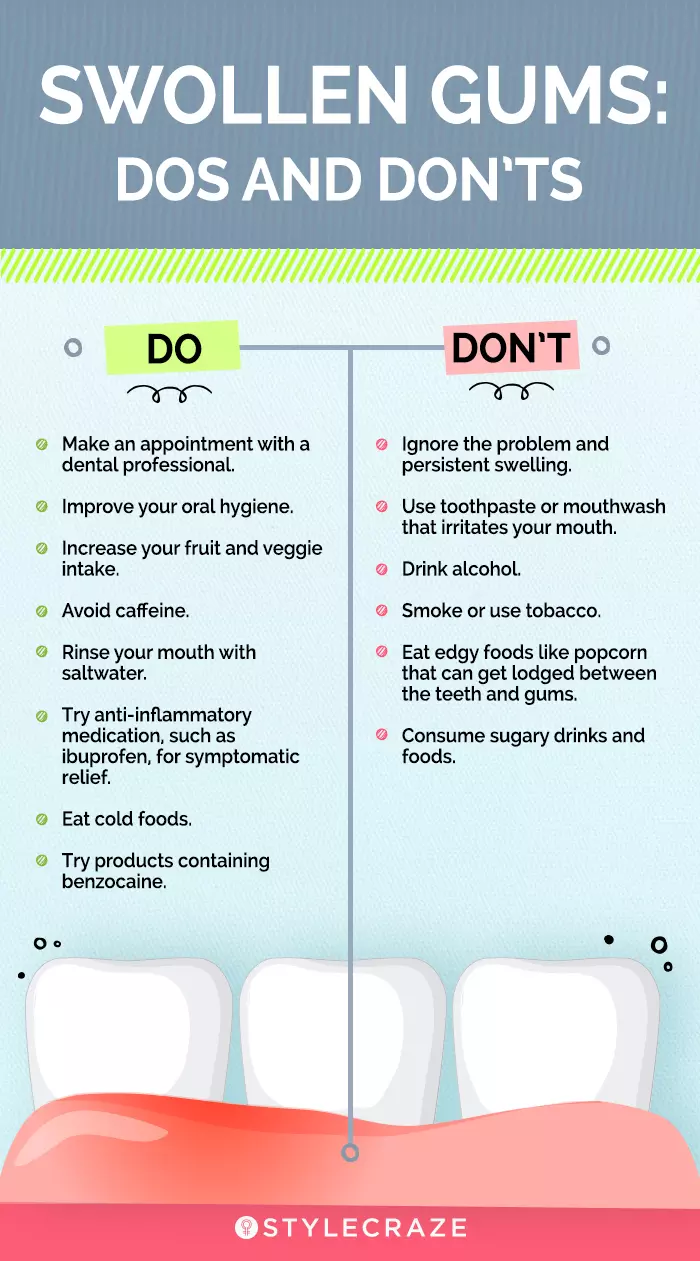
Swollen gums are most commonly a result of dental infections due to the overgrowth of bacteria on deposits of plaque and tartar. However, they may also be caused by other conditions such as gum injury, pregnancy, denture fixtures, and allergies. Redness, bleeding, pain, and bad breath are symptoms that often accompany swollen gums. The home remedies for swollen gums discussed here, like saline rinse, baking soda, clove oil, aloe vera, turmeric, castor oil, and babul bark, may provide symptomatic relief and facilitate recovery. However, to prevent complications, it is recommended that you consult a dentist and follow the prescribed treatment along with these herbal remedies. And while the already-mentioned tips can be beneficial, there are a few more easy remedies you can bookmark as well, such as coconut oil, sage, honey, and even some homeopathic remedies.
Frequently Asked Questions
Is Listerine good for swollen gums?
Listerine is an antiseptic mouthwash that may help inhibit bacterial growth and improve swollen gums caused due to an infection in its early stages.
Does hydrogen peroxide help swollen gums?
Yes, 3% hydrogen peroxide used as a rinse may help improve swollen gums.
Is garlic good for swollen gums?
Yes, garlic has antimicrobial and anti-inflammatory properties that may help reduce swelling in the gums (25).
What is the fastest way to heal swollen gums?
A proper swollen gums treatment at home might be a bit difficult. But, you can manage the swelling and reduce pain by gargling with lukewarm salt water that helps get rid of bacteria. Use a warm compress to help reduce the pain. Avoid using mouthwashes and consuming alcohol or tobacco.
Key Takeaways
- Rinse your mouth with salt water to lessen gum irritation and swelling.
- Apply aloe vera gel to ease sore gums and speed up recovery.
- To stop bleeding and swelling in the gums, brushing and flossing at least twice daily is recommended.
- If the symptoms last longer than a week, or if there is discomfort or bleeding, visit a dentist immediately.
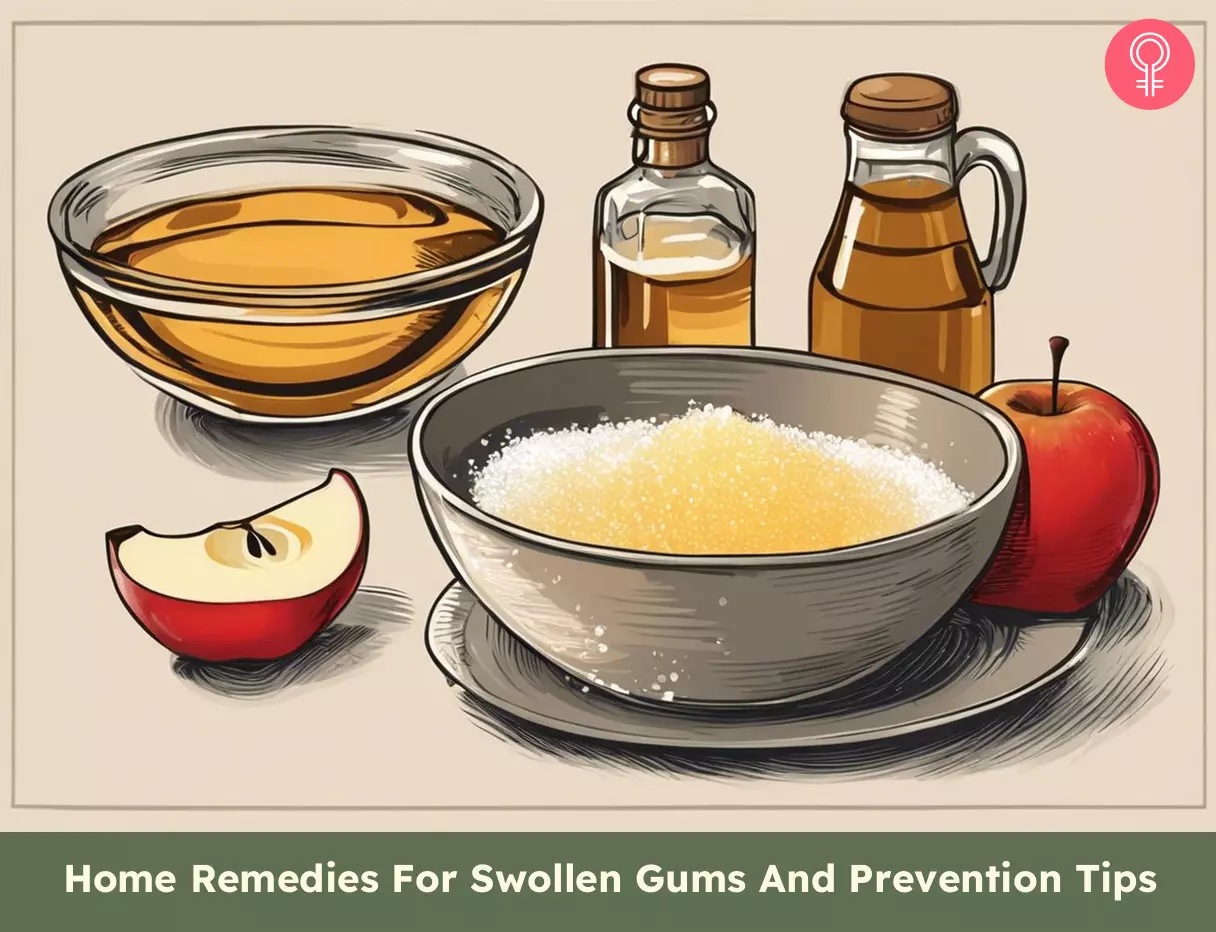
Image: Stable Diffusion/StyleCraze Design Team
References
Articles on StyleCraze are backed by verified information from peer-reviewed and academic research papers, reputed organizations, research institutions, and medical associations to ensure accuracy and relevance. Read our editorial policy to learn more.
- Periodontal (Gum) Disease, National Institute of Dental and Craniofacial Research, National Institutes of Health.
https://www.nidcr.nih.gov/health-info/gum-disease - Gums – swollen, Medical Encyclopedia, MedlinePlus, US National Library of Medicine, National Institutes of Health.
https://medlineplus.gov/ency/article/003066.htm - Rinsing with Saline Promotes Human Gingival Fibroblast Wound Healing In Vitro, Public Library of Science One, US National Library of Medicine, National Institutes of Health.
https://www.ncbi.nlm.nih.gov/pmc/articles/PMC4956236/ - Role of Warm Saline Mouth Rinse in Prevention of Alveolar Osteitis: A Randomized Controlled Trial, Nigerian Journal of Medicine, US National Library of Medicine, National Institutes of Health.
https://pubmed.ncbi.nlm.nih.gov/25807670 - A comparative study of antiplaque and antigingivitis effects of herbal mouthrinse containing tea tree oil, clove, and basil with commercially available essential oil mouthrinse, Journal of Indian Society of Periodontology, US National Library of Medicine, National Institutes of Health.
https://www.ncbi.nlm.nih.gov/pmc/articles/PMC4095623/ - Pharmacotherapeutic Properties of Ginger and its use in Diseases of the Oral Cavity: A Narrative Review, ResearchGate.
https://www.researchgate.net/publication/316506448_Pharmacotherapeutic_Properties_of_Ginger_and_its_use_in_Diseases_of_the_Oral_Cavity_A_Narrative_Review - Antibacterial activity of baking soda, Compendium of Continuing Education in Dentistry, US National Library of Medicine, National Institutes of Health.
https://www.ncbi.nlm.nih.gov/pubmed/12017929 - A microbiological and clinical study of the safety and efficacy of baking-soda dentifrices, Compendium of Continuing Education in Dentistry, US National Library of Medicine, National Institutes of Health.
https://www.ncbi.nlm.nih.gov/pubmed/11524866 - Phytochemical, antimicrobial, and antioxidant activities of different citrus juice concentrates, Food Science & Nutrition, US National Library of Medicine, National Institutes of Health.
https://www.ncbi.nlm.nih.gov/pmc/articles/PMC4708628/ - Melaleuca alternifolia (Tea Tree) Oil: a Review of Antimicrobial and Other Medicinal Properties, Clinical Microbiology Reviews, US National Library of Medicine, National Institutes of Health.
https://www.ncbi.nlm.nih.gov/pmc/articles/PMC1360273/ - Antimicrobial efficacy of five essential oils against oral pathogens: An in vitro study, European Journal of Dentistry, US National Library of Medicine, National Institutes of Health.
https://www.ncbi.nlm.nih.gov/pmc/articles/PMC4054083/ - Effects of chlorhexidine, essential oils and herbal medicines (Salvia, Chamomile, Calendula) on human fibroblast in vitro, Central-European Journal of Immunology, US National Library of Medicine, National Institutes of Health.
https://www.ncbi.nlm.nih.gov/pmc/articles/PMC4967643/ - Effectiveness of Lawsonia inermis L. LeavesMethanol Extracts on Gingivitis Healing (In vivoStudy on Sprague dawley Rats), British Journal of Medicine & Medical Research, ResearchGate.
https://www.researchgate.net/publication/301509291_Effectiveness_of_Lawsonia_inermis_L_Leaves_Methanol_Extracts_on_Gingivitis_Healing_In_vivo_Study_on_Sprague_dawley_Rats - ROLE OF CAMPHOR IN ORAL HEALTH CARE, International Journal of Pharmaceutical Science and Health Care.
https://rspublication.com/ijphc/2014/april14/1.pdf - Effect of ricinoleic acid in acute and subchronic experimental models of inflammation. Mediators of Inflammation, US National Library of Medicine, National Institutes of Health.
https://www.ncbi.nlm.nih.gov/pmc/articles/PMC1781768/ - The Effects of Acacia Arabica Gum on the in Vitro Growth and Protease Activities of Periodontopathic Bacteria, Journal of Clinical Periodontology, US National Library of Medicine, National Institutes of Health.
https://pubmed.ncbi.nlm.nih.gov/8473532 - Aloe vera: Its effect on gingivitis, Journal of Indian Society of Periodontology, US National Library of Medicine, National Institutes of Health.
https://www.ncbi.nlm.nih.gov/pmc/articles/PMC3800403/ - Turmeric: A Boon to Oral Health, International Journal of Oral Care, ResearchGate.
https://www.researchgate.net/publication/323172475_Turmeric_A_Boon_to_Oral_Health - Vinegar: Medicinal Uses and Antiglycemic Effect, Medscape General Medicine, US National Library of Medicine, National Institutes of Health.
https://www.ncbi.nlm.nih.gov/pmc/articles/PMC1785201/ - The Effect of Apple Cider Vinegar (ACV) as an Antifungal in a Diabetic Patient (Type II Diabetes ) with Intraoral Candidosis (A Case Report), International Journal of Dentistry and Oral Health.
http://www.biocoreopen.org/ijdoh/The-Effect-of-Apple-Cider-Vinegar-ACV-as-an-Antifungal-in-a-Diabetic-Patient-Type-II-Diabetes–with-Intraoral-Candidosis.pdf - Vanillin selectively modulates the action of antibiotics against resistant bacteria, Microbial Pathogenesis, US National Library of Medicine, National Institutes of Health.
https://www.ncbi.nlm.nih.gov/pubmed/29107747 - Efficacy of vanillin as principle constituent of mouth rinse, ResearchGate.
https://www.researchgate.net/publication/333092903_Efficacy_of_vanillin_as_principle_constituent_of_mouth_rinse - Compendium of Continuing Education in Dentistry, Canadian Medical Association, US National Library of Medicine, National Institutes of Health.
https://www.ncbi.nlm.nih.gov/pmc/articles/PMC1584988/pdf/canmedaj00347-0031.pdf - Effect of hydrogen peroxide on developing plaque and gingivitis in man, Journal of Clinical Periodontology, US National Library of Medicine, National Institutes of Health.
https://pubmed.ncbi.nlm.nih.gov/379049/ - Beneficial effect of aged garlic extract on periodontitis: a randomized controlled double-blind clinical study, Journal of Clinical Biochemistry and Nutrition, US National Library of Medicine, National Institutes of Health.
https://www.ncbi.nlm.nih.gov/pmc/articles/PMC7705088/
Read full bio of Dr. Meredith Gantos
Read full bio of Arshiya Syeda
Read full bio of Dipti Sharma





